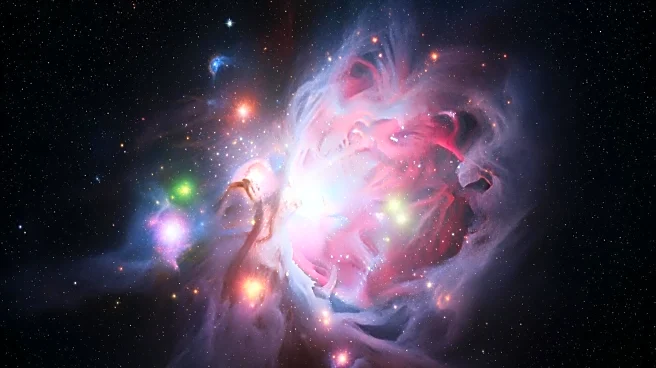What's Happening?
A recent study by researchers from Yonsei University in South Korea questions the widely accepted theory that the universe is expanding at an accelerating rate. The team, led by Young-Wook Lee, suggests that the brightness of Type 1a supernovae, used
as standard candles to measure cosmic distances, varies with the age of the stars. This 'age bias' could mean that the universe's expansion began decelerating 1.5 billion years ago, potentially leading to a 'big crunch' scenario. However, this claim is contested by other scientists, including Adam Reiss from the Space Telescope Science Institute, who argue that the study's methodology is flawed.
Why It's Important?
The study challenges a fundamental aspect of modern cosmology, the concept of dark energy driving the universe's accelerated expansion. If the findings are validated, they could necessitate a reevaluation of the current understanding of cosmic expansion and dark energy. This could have profound implications for theoretical physics and cosmology, potentially altering the narrative of the universe's fate and the forces governing its dynamics. The debate highlights the complexity of measuring cosmic phenomena and the need for precise observational data.
What's Next?
Upcoming observations from the Vera C. Rubin Observatory are expected to significantly increase the number of known Type 1a supernovae, providing more data to test these claims. This could either support or refute the study's conclusions, offering a clearer picture of the universe's expansion history. Additionally, ongoing research into dark energy, such as the DESI survey, continues to explore its nature and variability, which could further inform this debate.

















